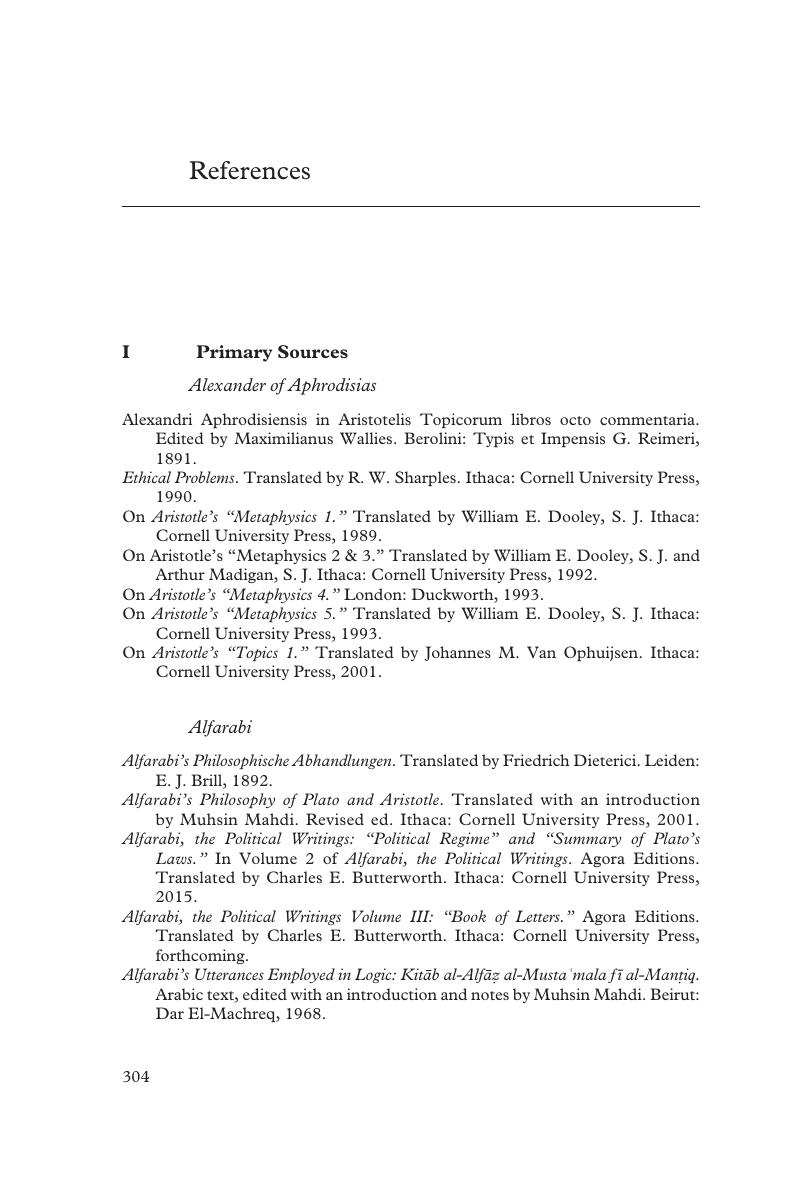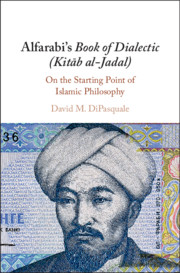Book contents
- Alfarabi’s Book of Dialectic (Kitāb al-Jadal)
- Alfarabi’s Book of Dialectic (Kitāb al-Jadal)
- Copyright page
- Dedication
- Epigraph
- Contents
- Preface
- Acknowledgments
- Introduction
- 1 Alfarabi’s Kitāb al-Jadal: A Complete English Translation
- 2 Dialectic and Political Science
- 3 Dialectic and the Principles of All Science
- 4 Dialectic and the Method of Natural and Divine Science
- 5 Dialectic and Education
- 6 Conclusion: Alfarabi and the Taxonomy of the Medieval Arabic Organon
- English–Arabic
- Arabic–English
- References
- Index
- References
References
Published online by Cambridge University Press: 11 October 2019
- Alfarabi’s Book of Dialectic (Kitāb al-Jadal)
- Alfarabi’s Book of Dialectic (Kitāb al-Jadal)
- Copyright page
- Dedication
- Epigraph
- Contents
- Preface
- Acknowledgments
- Introduction
- 1 Alfarabi’s Kitāb al-Jadal: A Complete English Translation
- 2 Dialectic and Political Science
- 3 Dialectic and the Principles of All Science
- 4 Dialectic and the Method of Natural and Divine Science
- 5 Dialectic and Education
- 6 Conclusion: Alfarabi and the Taxonomy of the Medieval Arabic Organon
- English–Arabic
- Arabic–English
- References
- Index
- References
Summary

- Type
- Chapter
- Information
- Alfarabi's Book of Dialectic (Kitab al-Jadal)On the Starting Point of Islamic Philosophy, pp. 304 - 326Publisher: Cambridge University PressPrint publication year: 2019



